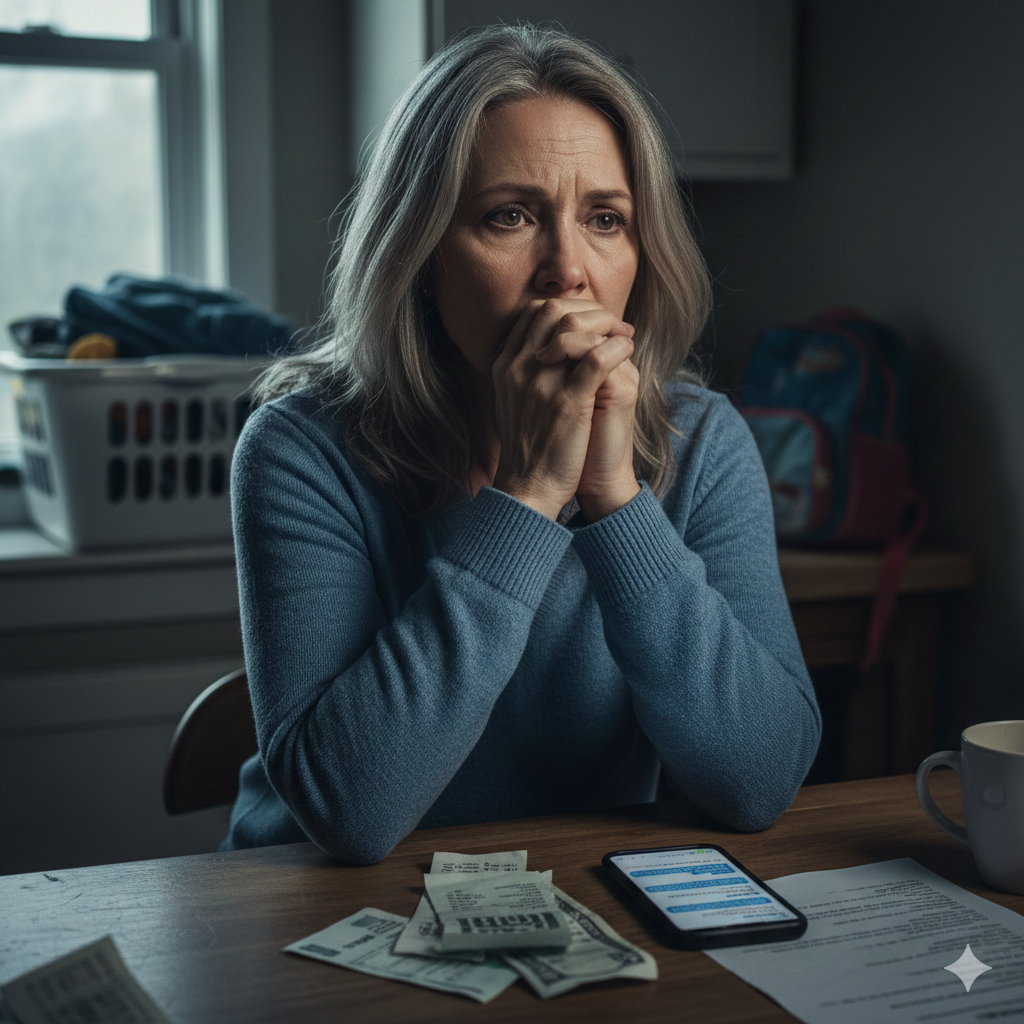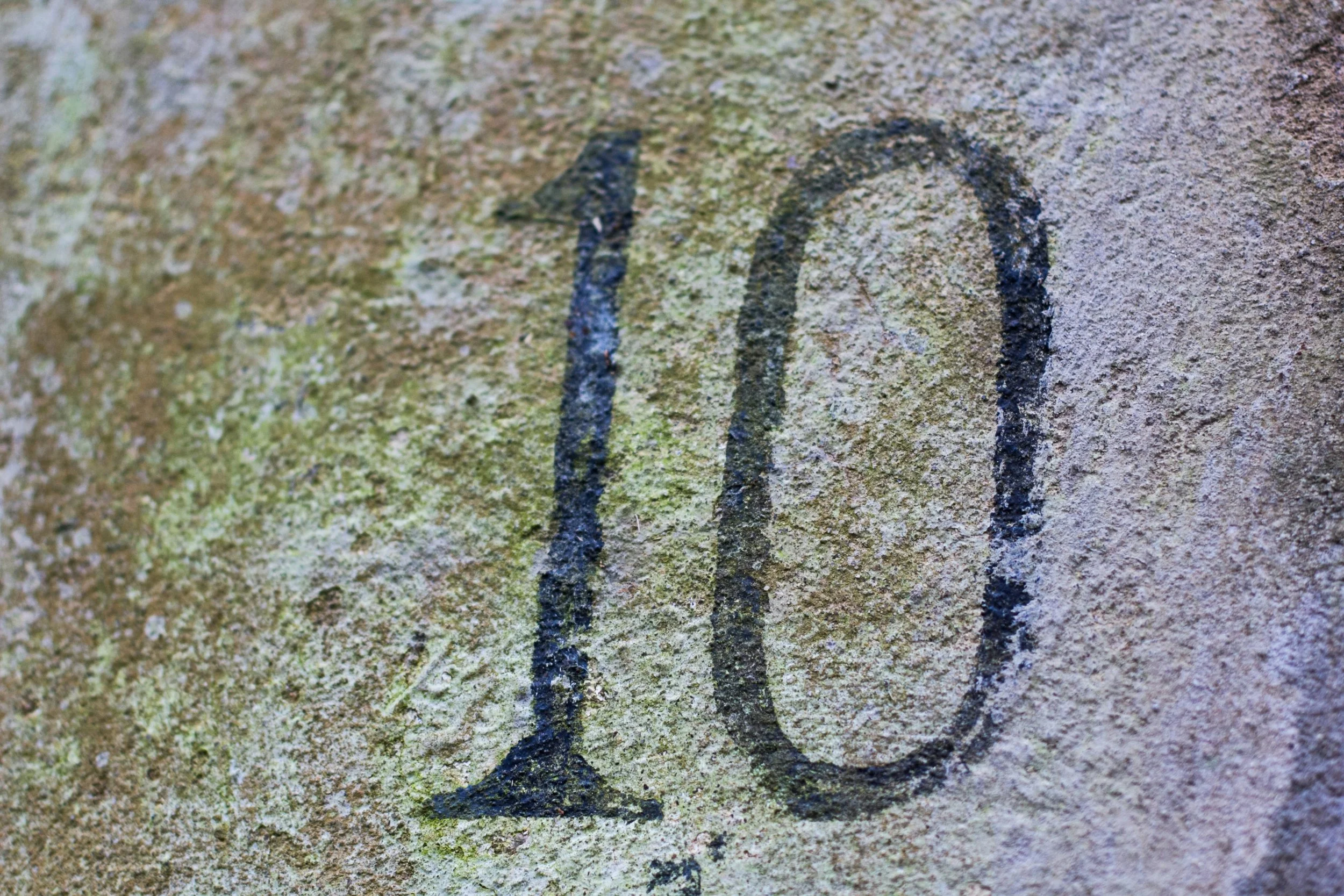Divorceworkshop Blog

Worry vs. Curiosity: A Small Shift That Changes Everything During Divorce
I used to think worrying was just part of being a responsible adult. If I wasn’t constantly turning things over in my head, I worried that I was… well, not worrying enough. Looking back, I can admit I was a little neurotic, but at the time, it felt like I was just being prepared, responsible, alert. I would love to say I am not a “worrier” anymore I still am but, I am a work in progress just like many and trying to use curiosity to help.
During my divorce, that inner voice got louder, a constant stream of "what ifs" running through my mind:
What if I can’t survive financially?
What if the kids don’t adjust?
What about my beloved dog and cat?
I have no idea what I’m doing.
This kind of worry is exactly what res

Divorce Conflict Resolution: Proven Strategies for a Smoother Separation
The Reality of Leaving
When I finally left my abusive and toxic marriage, after five attempts, I had no idea what divorce truly looked like. My parents had separated in the 1970s, and because it was a high-conflict divorce, I knew firsthand what it felt like as a child. However, experiencing it as an adult and a parent was a different world entirely.
At first, my ex reassured me: “I’m not going to have a divorce like my sisters, full of conflict.” I was naive enough to believe him. I thought we could have an amicable divorce, unaware that:
Truly amicable divorces account for only about 10% of cases.
The remaining 90% involve some level of conflict.
Divorce is, at its core, the negotiation and breaking of a legally binding contract.

"I'm So Angry at My Ex": Why It Happens and How to Manage Divorce Anger
We are closing out the final week of January, a month often called "Divorce Month" because of the spike in filings and the end of holiday truces. If you entered this year hoping for a "fresh start" but find yourself feeling more consumed by rage than peace, you are not alone. The reality of high-conflict divorce can quickly derail New Year’s resolutions.
A month after I left my toxic marriage, I found myself sitting in my car, screaming at my ex on my cell phone. I was so done. with the marriage, with everything I’d endured. Did this outburst help the separation process? Not at all. Did he deserve my anger? Absolutely.

Breaking Free from Emotional Overdependence: 6 Steps to Self-Reliance After Divorce
I remember the uncertainty and fear that crept in after my marriage ended. How would I manage on my own with two children after nearly two decades of shared life? Though I wasn’t overly dependent on my ex for emotional support, our lives were deeply intertwined, and his presence had always been a constant. The prospect of untangling those ties felt overwhelming. For some, this is the deepest fear.

Why I Stayed So Long in a Toxic Marriage,and What Finally Made Me Leave
As a mother of two young adults, I often find myself deeply contemplating the choices that led me to endure my toxic marriage for almost two decades. Having grown up in a high-conflict divorced family, I convinced myself that I could manage the complexities of staying in a deeply challenging relationship. I was determined not to repeat the past. I feared my children might experience the same chaos I lived through, and because of that fear, I poured endless energy into “making it work.”

The Truth About Divorce Anger: Why Common Coping Strategies Backfire
Divorce anger is tough—it fuels battles over money, custody, and communication, often driven by fear, grief, and frustration. When you feel powerless over the situation, anger can take over, making it harder to move forward.
So, what do most of us do? We vent to friends and family, hoping to "get it off our chest," or we throw ourselves into intense workouts, believing we can sweat out the rage. But research suggests these common coping strategies might not actually help—and could even make anger worse.

How to Handle Boundary Testing from a High-Conflict Ex After Divorce
There’s plenty of advice about the importance of boundaries during divorce. For many, setting firm limits is essential to moving forward. But what’s not always discussed is how some exes will continue to test those boundaries—sometimes long after the divorce is finalized.
Divorce isn’t just a legal process; it’s an emotional and psychological shift that requires redefining your relationship with your ex. While some expect pushback during separation, many don’t realize how persistently a high-conflict ex may challenge boundaries. Even those who recognize their ex’s controlling tendencies may be caught off guard by how relentless these behaviors can be. High-conflict personalities often escalate their actions to maintain influence.

Why “Sitting Still” Is the Smartest First Step in Divorce
As a mother of two young adults, I often find myself deeply contemplating the choices that led me to endure my toxic marriage for almost two decades. Having grown up in a high-conflict divorced family, I convinced myself that I could manage the complexities of staying in a deeply challenging relationship. I was determined not to repeat the past. I feared my children might experience the same chaos I lived through, and because of that fear, I poured endless energy into “making it work.”

Grief After Divorce: Why the Holidays Hurt and What Actually Helps
You can be functioning, coping, even doing “okay”… and then December arrives. Suddenly, old memories, family images, and rituals echo through your body whether you want them to or not.
I’ve worked in the grief field for years, and there is something about the holiday season that brings a very particular kind of heaviness. Whether the loss is through death or divorce, December has a way of stirring emotions that stay quiet the rest of the year. In my support groups, people often began expressing holiday anxiety as early as October. The dread wasn’t imagined; it was embodied.

Co-Parenting During the Holidays: How to Manage Anxiety When You Have to See Your Ex
I remember the first holiday season after our separation, and boy, was I nervous. My eldest was performing with her band at a beautiful venue, and I was truly looking forward to it. But my body? It was telling a completely different story. I was a bundle of nerves—tight chest, fidgety hands, that unsettled feeling sitting right under my ribs.
It wasn’t the concert that made me anxious. I knew my ex would be there. Knowing I’d have to stand in the same room, smile, and act composed while my insides were doing somersaults.
From the moment the divorce begins, many parents find themselves living on what I call the Front Stage—the place where you’re expected to stay composed, cooperative, and steady for your children, even when inside you’re dealing with heartbreak, anger, or survival-level stress. The holidays make these moments even more emotionally loaded because traditions, memories, and expectations are already heightened.
Have you ever had to put on a brave face and play nice with your ex in public? It’s like starring in a soap opera—or for some, winning an Oscar—just without the fame or fortune. Co-parenting throws you into situations where you must keep your cool for your children’s sake, even when every part of you is screaming otherwise.

They’ll Be Fine”: Why Saying “Kids Are Resilient” After Divorce Isn’t the Whole Truth
I went to a social worker as a teenager for over two years. And yes, it helped. I could finally talk about the horrendous things that happened to me growing up. But the truth? We only scratched the surface. The deeper wounds stayed buried.
As a child of a high-conflict divorce, I didn’t realize how much the instability and constant tension were shaping me. On the outside, I appeared to be fine. Inside, I was surviving.

Regret After Divorce: Understanding and Navigating the Emotional Struggles
I remember sitting in my therapist’s office, saying, "I don’t want any regrets. Maybe if we try couples therapy, I’ll know I did everything I could." At the time, it felt like the right thing to do—one last attempt to fix what was broken. But I didn’t realize then that I was with someone who would never take responsibility, someone who twisted every issue into being my fault. Even in therapy, when the counselor gently pointed out something he needed to address, he immediately turned it back on me.
I had hoped therapy would work, not just for myself, but for the years I had invested in this marriage and for the sake of our children. But looking back, I see things differently. Knowing what I know now, I can see it never would have worked.
Have you ever wondered, "Am I going to regret getting a divorce?" or "I regret I ever got married?" If so, you’re not alone. These thoughts often surface during the emotional and mental fallout of ending a marriage. Divorce can bring up intense feelings of grief and regret, but understanding why you feel this way and how to process those emotions can help you move forward with clarity and peace.

Hardship or Manipulation? The Child Support Loophole No One Talks About
When my ex claimed “financial hardship” to reduce or not pay his child support payments, I was shocked, but not entirely surprised. For years, he earned a six-figure income in retail. Then, during our separation, his story changed. He said he could no longer afford to contribute.
He cited his heart attack, valid for a bit, but years later. He mentioned having to repay a loan. He said he was grieving the loss of his mother. And while I don't doubt some of that was true, I also heard, through others, that he had recently traveled to Europe, was regularly playing golf, bought 2 e-bikes, and brought home a large dog with significant upkeep costs.

When You’re the One Who Does Everything: The Housework Divide That Breaks Marriages
The reason I decided to write this blog was a recent long-term study out of the University of Alberta that followed 520 people from their mid-twenties to age 50. It found that the housework divide, the unequal distribution of chores, barely changed over time. I was angry and frustrated. I had hoped things would have improved. But the study found that women carried more of the load at 25, and still carried it at 50.

Why It Only Feels Good 10% of the Time: The Truth About Toxic Relationships
Have you ever found yourself clinging to the few good moments in your relationship, the smiles, the intimacy, the laughter, while ignoring the long stretches of silence, tension, or emotional pain?
You’re not alone. Many people in emotionally abusive or toxic relationships describe their experience as “walking on eggshells,” unsure what mood they’ll come home to, constantly trying to avoid setting off a reaction.
And yet... they stay. Like I did.
Why? Because when it’s good, it’s really good. It’s the 10% that feels like sunshine after a storm. The make-up sex. The flowers. The apology. The “I miss you.” The vacation photo where you both look happy. It’s that sliver of time that keeps hope alive.
But what about the other 90%?

How to Divide Assets in Divorce Without Losing What Matters Most
Dividing assets during divorce is never just about money or spreadsheets. It’s about grief, fairness, survival, and identity.
You're not just splitting up possessions. You're unraveling a life that once felt whole. That includes memories, traditions, routines, and comfort. Often, you're trying to stay calm and fair while navigating one of the most emotionally intense experiences of your life.
Over the years, we’ve worked with many people who reached this point overwhelmed and unsure where to begin. Without a framework, it’s easy to fall into arguments, feel paralyzed, or walk away with regrets.
That’s why we teach a simple but powerful strategy to help you approach this step with more clarity and less chaos.

Why So Many Midlife Women Are Saying: Enough, I am getting a Divorce!
In my 40s, my periods started going haywire—heavier, more erratic, and totally draining. But what I didn’t realize then was that something deeper was shifting: not just my hormones, but my entire view of my marriage. I was drained from constantly giving everything, being blamed for everything, and the constant lies. I was in a marriage with a high-conflict personality.
However, at the time that my periods were starting to act funky, I didn’t connect the dots between perimenopause and my growing desire for a divorce. My hormones were shifting, so were my emotions, my patience was decreasing, and my tolerance for a relationship that had long taken more than it gave. Can I blame my divorce solely on perimenopause? Absolutely not, but it definitely influenced my decision.

Money Grief After Divorce: The Hidden Loss No One Talks About
When we think about grief after divorce, most people imagine the loss of love, trust, or family structure. But there’s another kind of grief that runs deep, and is rarely named: money grief.
One of my clients once said, “I’m not grieving the loss of my ex, my identity, or our failed dreams. I’m grieving not seeing my children every day, and losing my beautiful house.”
In the divorce world, we often talk about grieving relationships, family routines, or personal identity. But there's a quieter grief many people carry: I miss my house. I miss the lifestyle I once had.

The Unseen Lifeline: How Siblings Help Each Other Through Divorce
Watching my daughters navigate our divorce together has been one of the most unexpectedly powerful parts of this journey. They lean on each other, confide in each other, and instinctively offer comfort in ways that even I can’t always provide. I remember one day, when an issue came up with their co-parent, they didn’t come to me right away. Instead, they met quietly in one of their bedrooms to talk. I didn’t listen in, but I remember thinking: this is powerful. As teenagers, they understood the value of facing difficult moments as a team.
It made me realize something I hadn’t fully understood before: siblings can be an incredible source of strength during divorce.

Wait! You’re ordering for me? And…did you say no tipping?” Welcome to the wild, weird, and wonderfully awkward world of online dating after divorce.
These were no ordinary tales; they were accounts of shocking and somewhat strange first meetings that sparked laughter among us. Amid the amusement, Kirk's co-author emphatically insisted, "These stories need to find a place in our workbook."
And why not? These narratives weren’t the stuff of fiction; they were genuine, relatable stories that served as more than just sources of entertainment. They stood as tangible reminders that the unexpected is par for the course in the realm of online post-divorce dating. By sharing these stories, we aim to prepare readers for the unpredictability of dating while providing a dose of humor to lighten the journey.
For further insights, check out my previous blog, Spotting Narcissistic Red Flags in Post-Divorce Dating.
